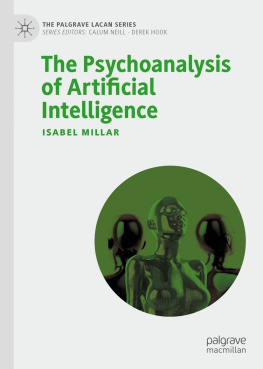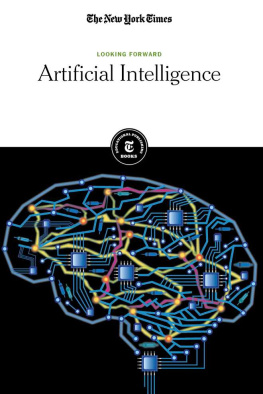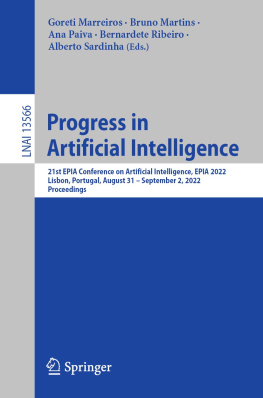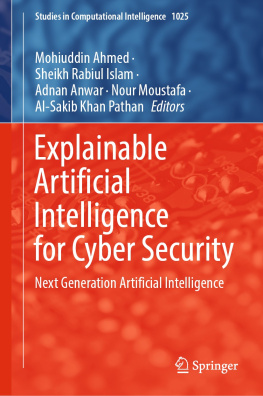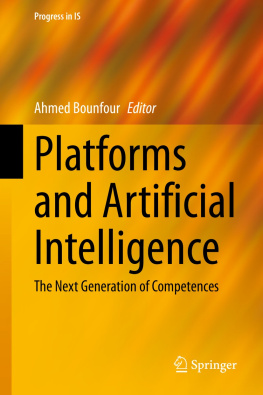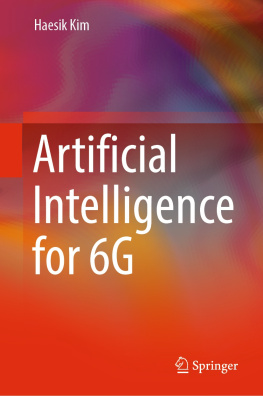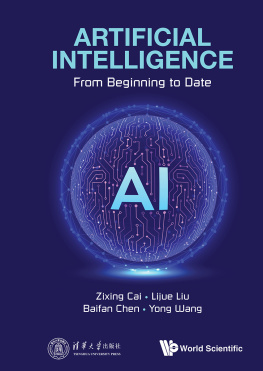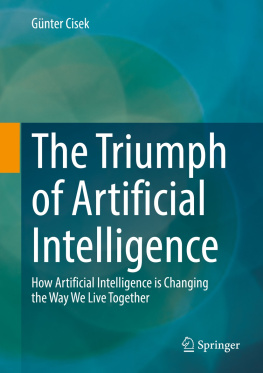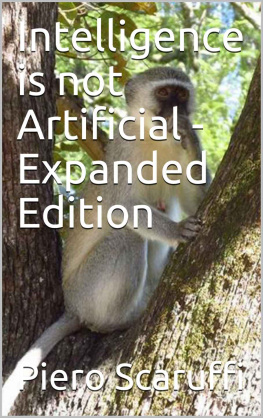Isabel Millar - The Psychoanalysis of Artificial Intelligence
Here you can read online Isabel Millar - The Psychoanalysis of Artificial Intelligence full text of the book (entire story) in english for free. Download pdf and epub, get meaning, cover and reviews about this ebook. publisher: Springer International Publishing, genre: Romance novel. Description of the work, (preface) as well as reviews are available. Best literature library LitArk.com created for fans of good reading and offers a wide selection of genres:
Romance novel
Science fiction
Adventure
Detective
Science
History
Home and family
Prose
Art
Politics
Computer
Non-fiction
Religion
Business
Children
Humor
Choose a favorite category and find really read worthwhile books. Enjoy immersion in the world of imagination, feel the emotions of the characters or learn something new for yourself, make an fascinating discovery.
- Book:The Psychoanalysis of Artificial Intelligence
- Author:
- Publisher:Springer International Publishing
- Genre:
- Rating:5 / 5
- Favourites:Add to favourites
- Your mark:
- 100
- 1
- 2
- 3
- 4
- 5
The Psychoanalysis of Artificial Intelligence: summary, description and annotation
We offer to read an annotation, description, summary or preface (depends on what the author of the book "The Psychoanalysis of Artificial Intelligence" wrote himself). If you haven't found the necessary information about the book — write in the comments, we will try to find it.
The Psychoanalysis of Artificial Intelligence — read online for free the complete book (whole text) full work
Below is the text of the book, divided by pages. System saving the place of the last page read, allows you to conveniently read the book "The Psychoanalysis of Artificial Intelligence" online for free, without having to search again every time where you left off. Put a bookmark, and you can go to the page where you finished reading at any time.
Font size:
Interval:
Bookmark:
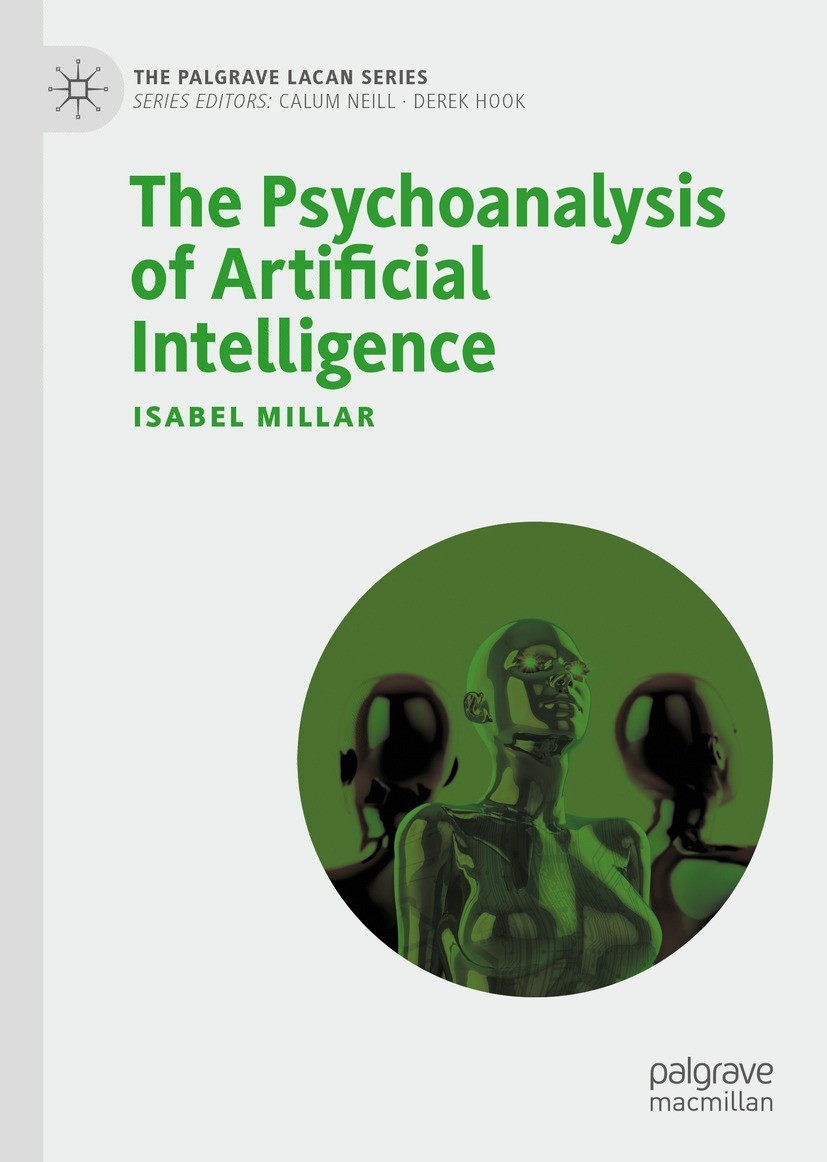
Jacques Lacan is one of the most important and influential thinkers of the 20th century. The reach of this influence continues to grow as we settle into the 21st century, the resonance of Lacans thought arguably only beginning now to be properly felt, both in terms of its application to clinical matters and in its application to a range of human activities and interests. The Palgrave Lacan Series is a book series for the best new writing in the Lacanian field, giving voice to the leading writers of a new generation of Lacanian thought. The series will comprise original monographs and thematic, multi-authored collections. The books in the series will explore aspects of Lacans theory from new perspectives and with original insights. There will be books focused on particular areas of or issues in clinical work. There will be books focused on applying Lacanian theory to areas and issues beyond the clinic, to matters of society, politics, the arts and culture. Each book, whatever its particular concern, will work to expand our understanding of Lacans theory and its value in the 21st century.
More information about this series at http://www.palgrave.com/gp/series/15116

Cover illustration: VICTOR HABBICK VISIONS/SCIENCE PHOTO LIBRARY/gettyimages
This Palgrave Macmillan imprint is published by the registered company Springer Nature Switzerland AG.
The registered company address is: Gewerbestrasse 11, 6330 Cham, Switzerland
This book is dedicated to my mum, Sylvia.
In 2010 on LessWrong forum, a user named Roko posited a thought experiment. He proposed that in a hypothetical future an all-powerful super-intelligent AI could retrospectively punish anyone who in the present time did not do everything in their power to aid in the creation of such a superintelligence. By merely entertaining the idea of such a being and not facilitating its development you would expose yourself to the possibility that it would deduce that you had not acted in accordance with the duty to bring it into existence (the moralistic tone of the experiment is enforced by the fact that the AI is paradoxically a benevolent one whose task is to protect humankind, and therefore those who dont facilitate its existence desire ill against their fellow men). The vengeful Abrahamic nature of the Basilisk meant that in future, it could recreate a simulation of you to torture for all eternity for the sin of putting him at existential risk. The Old Testament stylings of the Basilisk are clear: hes nice, but only if you deserve it.
As absurd as the tale sounds, it was met with outrage by the sites founder and director of the Machine Intelligence Research Institute (MIRI) in California, Eliezer Yudkowsky. Yudkowsky felt that Roko had opened a pandoras box of previously unimaginable torment that the poor readers of his blog would now fall victim to. In response to Rokos post he reportedly said:
Listen to me very closely, you idiot.
YOU DO NOT THINK IN SUFFICIENT DETAIL ABOUT SUPERINTELLIGENCES CONSIDERING WHETHER OR NOT TO BLACKMAIL YOU. THAT IS THE ONLY POSSIBLE THING WHICH GIVES THEM A MOTIVE TO FOLLOW THROUGH ON THE BLACKMAIL.
You have to be really clever to come up with a genuinely dangerous thought. I am disheartened that people can be clever enough to do that and not clever enough to do the obvious thing and KEEP THEIR IDIOT MOUTHS SHUT about it, because it is much more important to sound intelligent when talking to your friends.
This post was STUPID (ibid.).
The post was subsequently removed, and all talk of the Basilisk was banned from the website for over five years. But the Basilisk had already wreaked havoc among the forums readers many of whom had started to experience psychological difficulties. Paranoiac fears of the Basilisks future existence have now become something between an urban legend and a genuine topic of philosophical debate, not to mention the fact that it is taken seriously by some of the major tech entrepreneurs and scientists currently driving AI research. The logic behind the Basilisk is even (spuriously) backed up by Timeless Decision Theory and Bayesian probability.In fact, Yudkowsky (2010) has written at length on the theory underpinning the problem of the Basilisk, even drawing on the prisoners dilemma which we will recall Lacan (2006a) uses in his discussion of logical time. The prisoners dilemma was a thought experiment in game theory, where the actions of several prisoners were dependant on the anticipated decisions of one another in order for them to secure their freedom. The dilemma exemplified for Lacan the tripartite structure of time surreptitiously at work in the concept of so-called rational thought. These he called the instant of seeing, the time for understanding, and the moment of concluding. Accordingly, whilst logical time is not objective, this does not mean that it cannot be formulated according to a rigorous structure; that of intersubjective logic based on a dialectical relation between hesitation and urgency. A logic we see at work in Rokos autopoietic Basilisk and what could be called in other terms, hyperstition .
The term hyperstition was coined by Warwick Universitys Cybernetic Cultural Research Unit (CCRU) and continues to be one of the major concepts of the Accelerationist movement. A portmanteau of hyper and superstition, drawing on the Baudrillardian logic of hyperreality , hyperstition to paraphrase Nick Srnicek and Alex Williams (2014), the authors of the
Font size:
Interval:
Bookmark:
Similar books «The Psychoanalysis of Artificial Intelligence»
Look at similar books to The Psychoanalysis of Artificial Intelligence. We have selected literature similar in name and meaning in the hope of providing readers with more options to find new, interesting, not yet read works.
Discussion, reviews of the book The Psychoanalysis of Artificial Intelligence and just readers' own opinions. Leave your comments, write what you think about the work, its meaning or the main characters. Specify what exactly you liked and what you didn't like, and why you think so.

